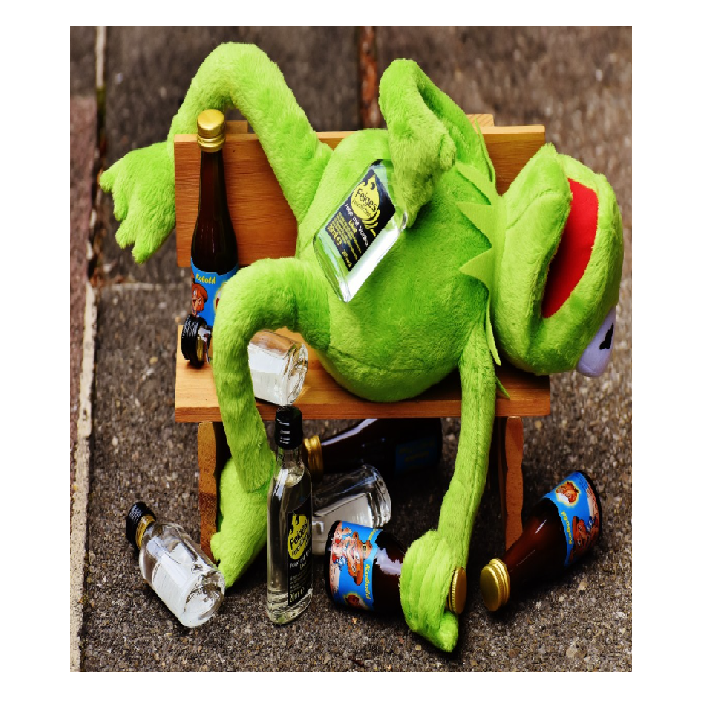Winzar v Chief Constable of Kent, The Times, 28 March 1983
Citation:Winzar v Chief Constable of Kent, The Times, 28 March 1983
Link to case on WorldLII (reference).
Rule of thumb:If you are excessively drunk on the street, is this a crime? If you are so inebriated that you are on the street and unable to move on, yes, this is the criminal offence of being drunk & disorderly.
Judgment:
The basic facts of this case were that Wiznar was found inebriated on the street completely drunk. Emergency services took Wiznar to accident and emergency who examined him and diagnosed that he was drunk but not in any danger such that he would need his stomach pumped. The hospital told Wiznar to go home and get rest. The hospital later found Wiznar asleep on the floor of the hospital and they could not get him to go home. The hospital called the police. The police arrived and were informed by the hospital that Wiznar was fine but just refusing to leave. The police took him out of the hospital and to the road/path adjacent to the hospital. Wiznar then tried to sleep on the road. Wiznar was prosecuted for being drunk and disorderly on a highway. Wiznar argued that he could not be convicted of this because the police had created this crime by leaving him there. The Court held that Wiznar was guilty of being drunk and disorderly – the hospital had diagnosed that he was fine, and this was therefore a criminal offence for him not to be on his way afterwards.
Ratio-decidendi:
'Does the fact that the Appellant was only momentarily on the highway and not there of his own volition, prevent his conviction of the offence of being found drunk in a highway? … In my judgment, looking at the purpose of this particular offence, it is designed … to deal with the nuisance which can be caused by persons who are drunk in a public place. This kind of offence is caused quite simply when a person is found drunk in a public place or in a highway… [A]n example … illustrates how sensible that conclusion is. Suppose a person was found as being drunk in a restaurant or a place of that kind and was asked to leave. If he was asked to leave, he would walk out of the door of the restaurant and would be in a public place or in a highway of his own volition. He would be there of his own volition because he had responded to a request. However, if a man in a restaurant made a thorough nuisance of himself, was asked to leave, objected and was ejected, in those circumstances, he would not be in a public place of his own volition because he would have been put there either by a gentleman on the door of the restaurant, or by a police officer, who might have been called to deal with the man in question. It would be nonsense if one were to say that the man who responded to the plea to leave could be said to be found drunk in a public place or in a highway, whereas the man who had been compelled to leave could not. This leads me to the conclusion that a person is ‘found to be drunk in a public place or in a highway,’ within the meaning of those words as used in the section, when he is perceived to be drunk in a public place. It is enough for the commission of the offence if (1) a person is in a public place or a highway, (2) he is drunk, and (3) in those circumstances he is perceived to be there and to be drunk. Once those criteria have been fulfilled, he is liable to be convicted of the offence of being found drunk in a highway. Finally, I turn to the question: Does it matter if the Appellant was only momentarily in the highway? In my judgment, it makes no difference. A man may be perceived to be drunk in the highway for five minutes, for one minute or for ten seconds. However short the period of time, if a man is perceived to be drunk in a highway, he is guilty of the offence under the section. Of course, if the period of time is very short, the penalty imposed may be minimal; indeed in such circumstances a police officer, using his discretion, may think it unnecessary to charge the man. The point is simply that the offence is committed if a person is perceived to be drunk in a public place or in the highway. Once that criterion is fulfilled, then the offence is committed.” Goff L.J

Warning: This is not professional legal advice. This is not professional legal education advice. Please obtain professional guidance before embarking on any legal course of action. This is just an interpretation of a Judgment by persons of legal insight & varying levels of legal specialism, experience & expertise. Please read the Judgment yourself and form your own interpretation of it with professional assistance.

